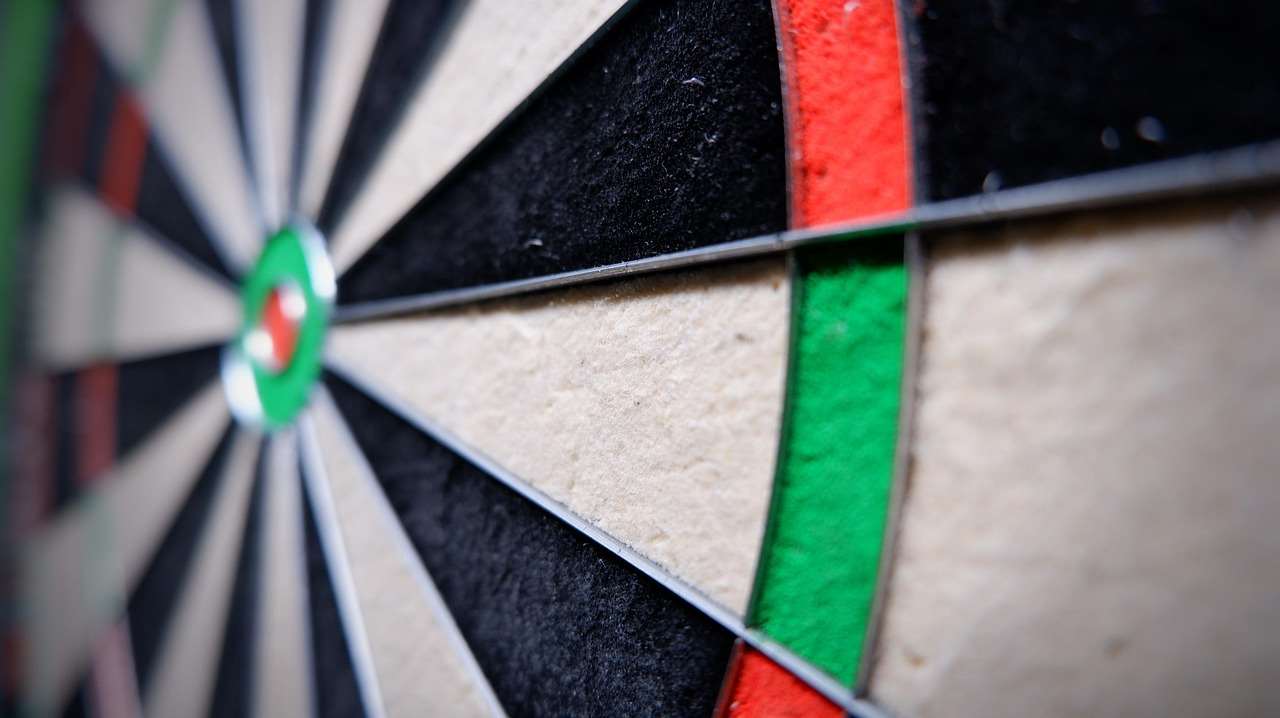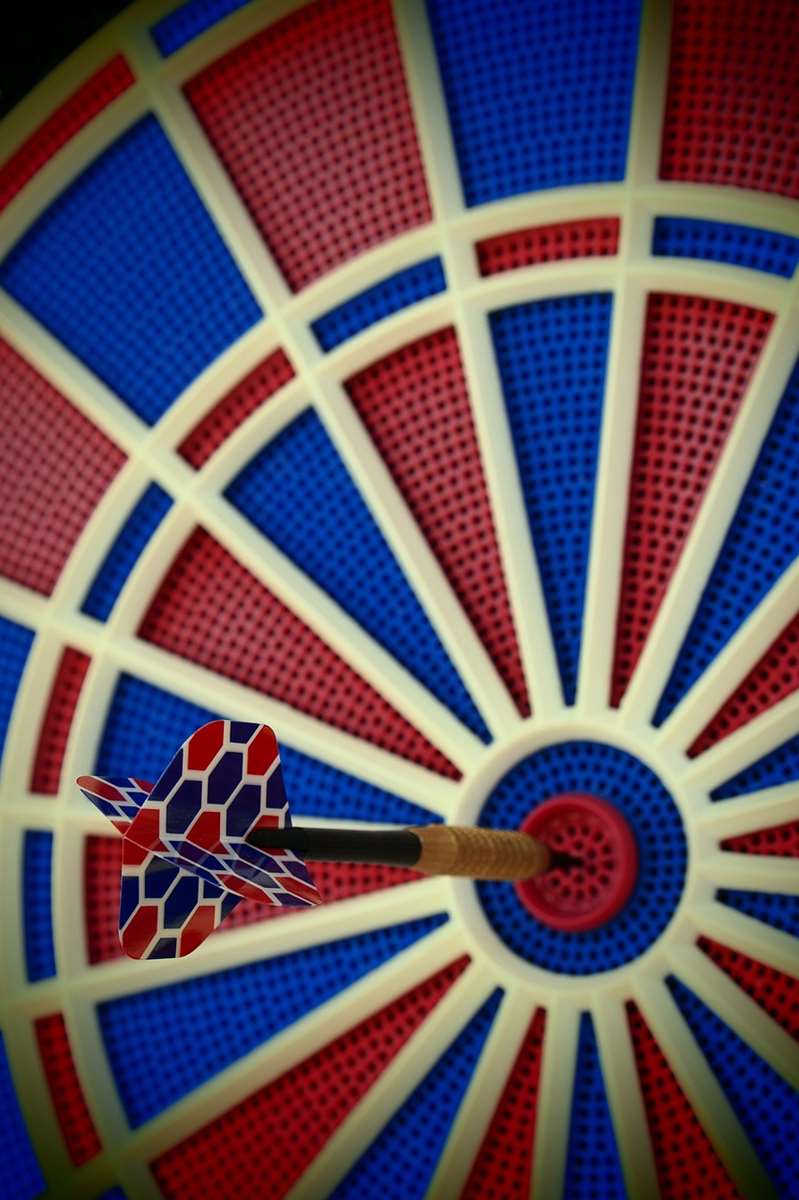Understanding the global ranking system PDC WDF model is crucial for anyone involved in professional darts, from players aiming for the top spots to fans tracking their favorites’ progress. This article provides a comprehensive overview of how these ranking systems work, their impact on the sport, and what they mean for the future of professional darts. We’ll delve into the intricacies of both the PDC Order of Merit and the WDF ranking system, highlighting their key differences and significance.
⚠️ Still Using Pen & Paper (or a Chalkboard)?! ⚠️
Step into the future! The Dart Counter App handles all the scoring, suggests checkouts, and tracks your stats automatically. It's easier than you think!
Try the Smart Dart Counter App FREE!Ready for an upgrade? Click above!
Decoding the PDC Order of Merit: A Key Component of the Global Ranking System PDC WDF Model
The PDC (Professional Darts Corporation) Order of Merit is perhaps the most well-known ranking system in professional darts. Unlike a rolling ranking system that considers performance over a fixed period, the Order of Merit is based on prize money earned over a two-year period. This means a player’s ranking is directly tied to their financial success within PDC events.
Here’s how it generally works:
- Prize Money Accumulation: Players accumulate prize money by participating in and winning PDC tournaments.
- Two-Year Cycle: The Order of Merit is a two-year rolling system. Prize money earned from events held two years prior is removed, and new prize money is added. This ensures the ranking reflects recent performance.
- Tournament Qualification: The Order of Merit is critical for qualification into major PDC events, including the World Darts Championship, World Matchplay, and World Grand Prix. Typically, the top players on the Order of Merit automatically qualify.
- Seeding: The Order of Merit also determines seeding in tournaments. Higher-ranked players receive more favorable draws, increasing their chances of progressing further in the competition.
The impact of the Order of Merit is immense. It directly influences a player’s career trajectory, dictating which tournaments they can participate in and how favorably they are seeded. Achieving a high ranking on the Order of Merit is a primary goal for any PDC professional, leading to greater opportunities, higher prize money, and increased exposure.

The Significance of the PDC Order of Merit
The Order of Merit is more than just a list of names; it’s a direct reflection of competitive success and consistency within the PDC. Maintaining a high position requires sustained performance over a two-year period, rewarding players who consistently reach the later stages of tournaments.
For sponsors, the Order of Merit provides a valuable metric for assessing a player’s marketability and potential return on investment. Higher-ranked players command greater sponsorship opportunities due to their increased visibility and success.
Fans also pay close attention to the Order of Merit, using it to track the progress of their favorite players and identify potential contenders for major titles. The rankings often fuel debates and discussions about who the best players in the world are.
The Business of Darts is greatly influenced by these rankings, affecting everything from player endorsements to tournament viewership.
The WDF Ranking System: A Different Approach within the Global Ranking System PDC WDF Model
The WDF (World Darts Federation) operates a separate ranking system that aims to be more inclusive and globally representative. While the PDC Order of Merit focuses primarily on professional events within the PDC circuit, the WDF ranking system encompasses a wider range of tournaments around the world, including amateur and regional events.

Here are the key features of the WDF ranking system:
- Points-Based System: The WDF ranking system uses a points-based system, where players earn points based on their performance in WDF-sanctioned tournaments.
- Rolling Ranking: The WDF ranking system operates on a rolling 52-week basis, meaning points earned from events more than 52 weeks ago are dropped. This ensures the ranking reflects recent form.
- Global Inclusivity: The WDF system is designed to include players from all over the world, providing opportunities for players outside the PDC circuit to gain recognition and compete in major WDF events.
- Different Tournament Categories: The WDF assigns different point values to tournaments based on their category (e.g., Gold, Silver, Bronze). Higher-category tournaments award more points.
The WDF ranking system plays a crucial role in determining qualification for major WDF events, such as the WDF World Championship. It also serves as a benchmark for players aspiring to turn professional, providing a pathway to higher levels of competition.
Comparing the PDC Order of Merit and the WDF Ranking System
While both systems contribute to the global ranking system PDC WDF model, there are significant differences between the PDC Order of Merit and the WDF ranking system:
- Focus: The PDC Order of Merit focuses on prize money earned within the PDC, while the WDF ranking system focuses on points earned in WDF-sanctioned events worldwide.
- Scope: The PDC Order of Merit is primarily for professional players within the PDC, while the WDF ranking system encompasses a broader range of players, including amateur and regional competitors.
- Purpose: The PDC Order of Merit primarily determines qualification and seeding for PDC events, while the WDF ranking system primarily determines qualification for WDF events and provides a global ranking for players of all levels.
Understanding these differences is essential for appreciating the complexities of the global ranking system PDC WDF model and how it shapes the landscape of professional darts.

The Impact of Ranking Systems on Player Careers
The global ranking system PDC WDF model has a profound impact on the careers of professional darts players. A high ranking translates into increased opportunities, higher earnings, and greater recognition.
Here’s how:
- Tournament Invitations: Higher-ranked players receive automatic invitations to prestigious tournaments, guaranteeing them exposure and the chance to earn significant prize money.
- Sponsorship Opportunities: A strong ranking enhances a player’s marketability, attracting lucrative sponsorship deals from dart manufacturers, apparel companies, and other brands.
- Increased Media Exposure: Top-ranked players are more likely to be featured in media coverage, increasing their visibility and fan base.
- Career Longevity: Consistent success and a high ranking can extend a player’s career, allowing them to compete at the highest level for longer.
Conversely, a low ranking can have detrimental effects, limiting opportunities and potentially forcing players to leave the professional circuit.
Strategies for Improving Ranking
For players aiming to climb the rankings, a strategic approach is essential. Here are some key tips:
- Consistent Performance: The most important factor is consistent performance in tournaments. Aim to reach the later stages of events to maximize prize money and ranking points.
- Target Key Events: Focus on performing well in major tournaments that offer significant prize money or ranking points.
- Practice and Preparation: Dedicate sufficient time to practice and prepare for tournaments. Analyze your game, identify weaknesses, and work to improve them.
- Mental Fortitude: Develop mental toughness to handle pressure situations and perform at your best when it matters most.
- Strategic Tournament Selection: Carefully select tournaments that offer the best opportunities for you to earn prize money or ranking points based on your skill level and travel considerations.

The Future of Darts Rankings: Evolution and Innovation
The global ranking system PDC WDF model is not static; it is constantly evolving to better reflect the changing landscape of professional darts. There are ongoing discussions and potential innovations that could shape the future of darts rankings.
Possible future developments include:
- Unified Ranking System: Some have suggested the possibility of a unified ranking system that combines the PDC and WDF rankings, providing a single global ranking for all professional darts players. However, significant challenges exist in achieving this due to the different structures and priorities of the two organizations.
- Enhanced Data Analytics: The increasing use of data analytics could lead to more sophisticated ranking systems that take into account factors beyond prize money and ranking points, such as average score, checkout percentage, and head-to-head record.
- Increased Transparency: Efforts to improve the transparency of ranking systems could help to build trust and confidence among players and fans.
As the sport of darts continues to grow and evolve, the global ranking system PDC WDF model will play an increasingly important role in shaping its future.
The darts tv rights value also has a indirect influence on ranking as it influences prize funds available to players.

Conclusion
The global ranking system PDC WDF model is a complex but crucial aspect of professional darts. The PDC Order of Merit and the WDF ranking system, while distinct in their approaches, both serve to measure and reward player performance. Understanding how these systems work is essential for players striving for success, sponsors evaluating investments, and fans following the sport.
By consistently performing well, strategically targeting key events, and maintaining a strong mental game, players can improve their ranking and unlock greater opportunities in the world of professional darts. The future of darts rankings may see further evolution and innovation, but the fundamental principle of rewarding excellence will remain at its core.
Ready to take your darts knowledge to the next level? Explore more articles on this site to deepen your understanding of the sport and its key players. And don’t forget to share this article with your fellow darts enthusiasts!
Hi, I’m Dieter, and I created Dartcounter (Dartcounterapp.com). My motivation wasn’t being a darts expert – quite the opposite! When I first started playing, I loved the game but found keeping accurate scores and tracking stats difficult and distracting.
I figured I couldn’t be the only one struggling with this. So, I decided to build a solution: an easy-to-use application that everyone, no matter their experience level, could use to manage scoring effortlessly.
My goal for Dartcounter was simple: let the app handle the numbers – the scoring, the averages, the stats, even checkout suggestions – so players could focus purely on their throw and enjoying the game. It began as a way to solve my own beginner’s problem, and I’m thrilled it has grown into a helpful tool for the wider darts community.